Interrogative Questions Go Fish Game
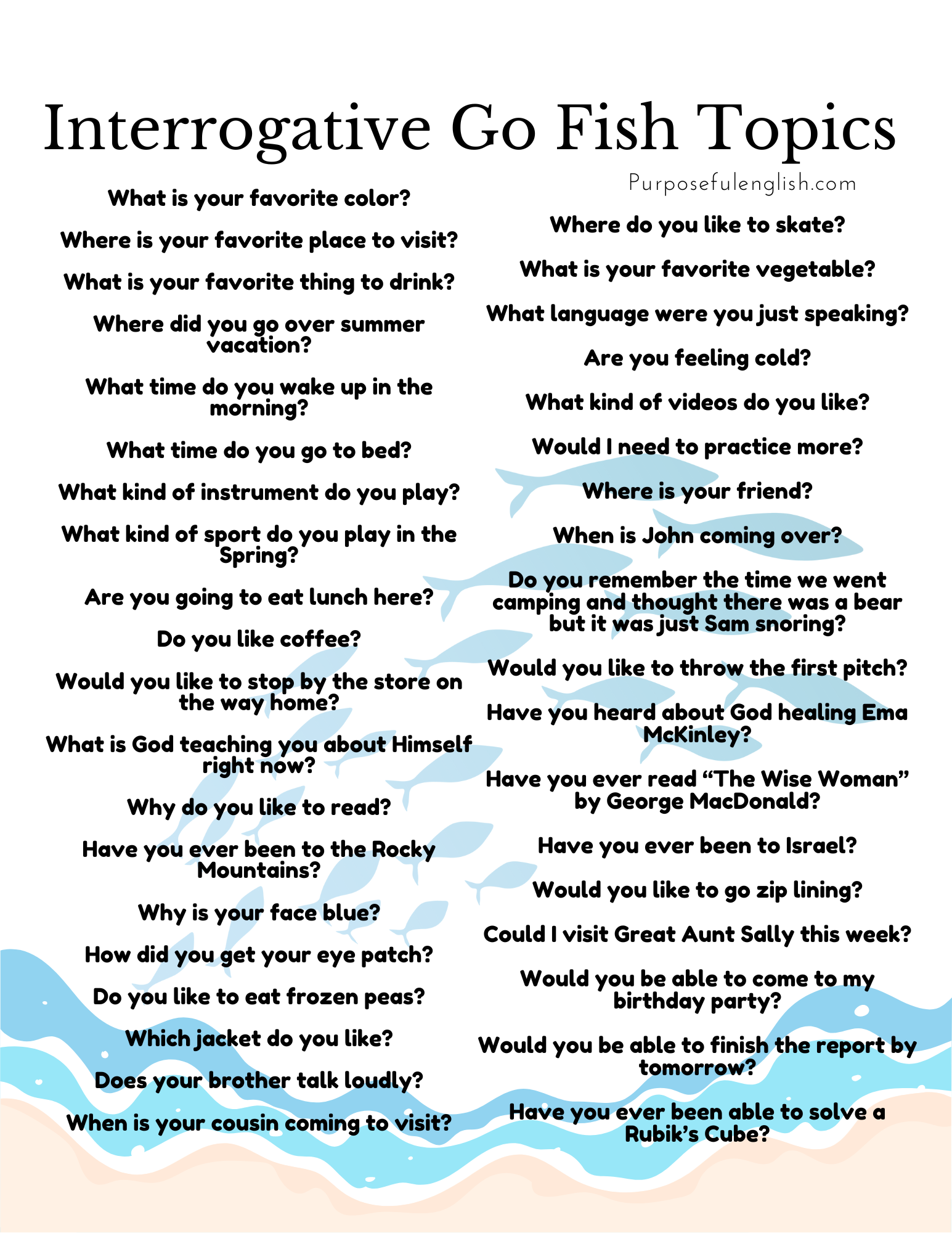
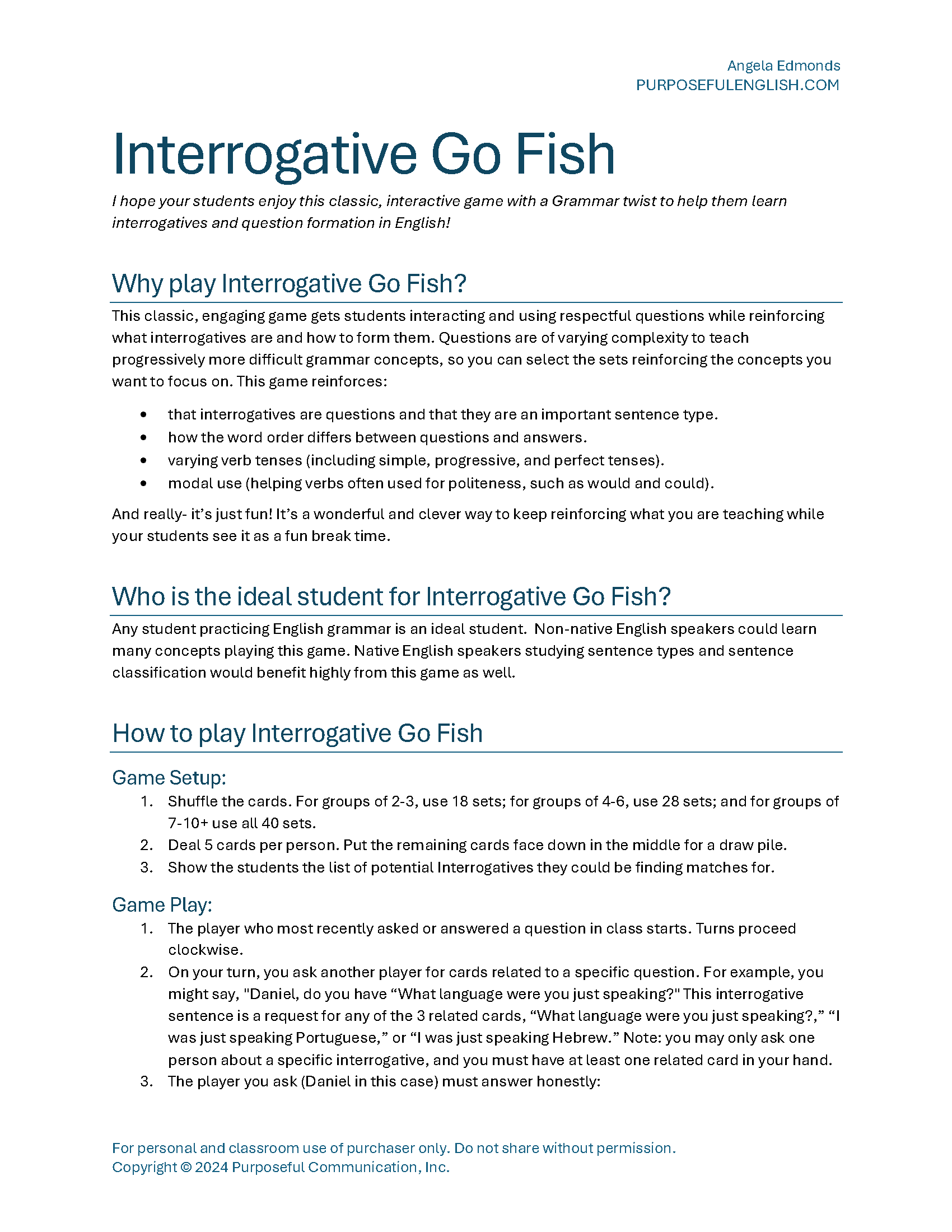

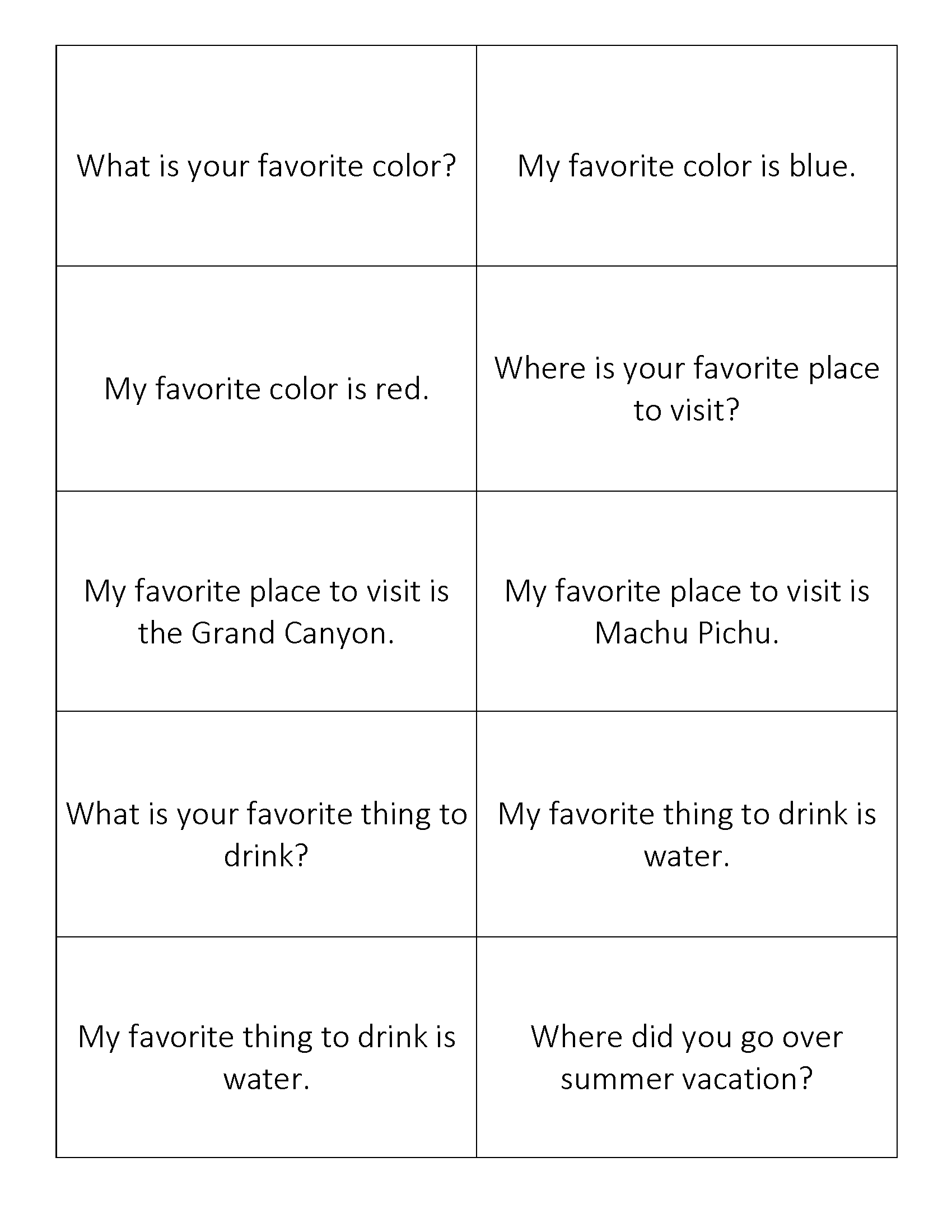
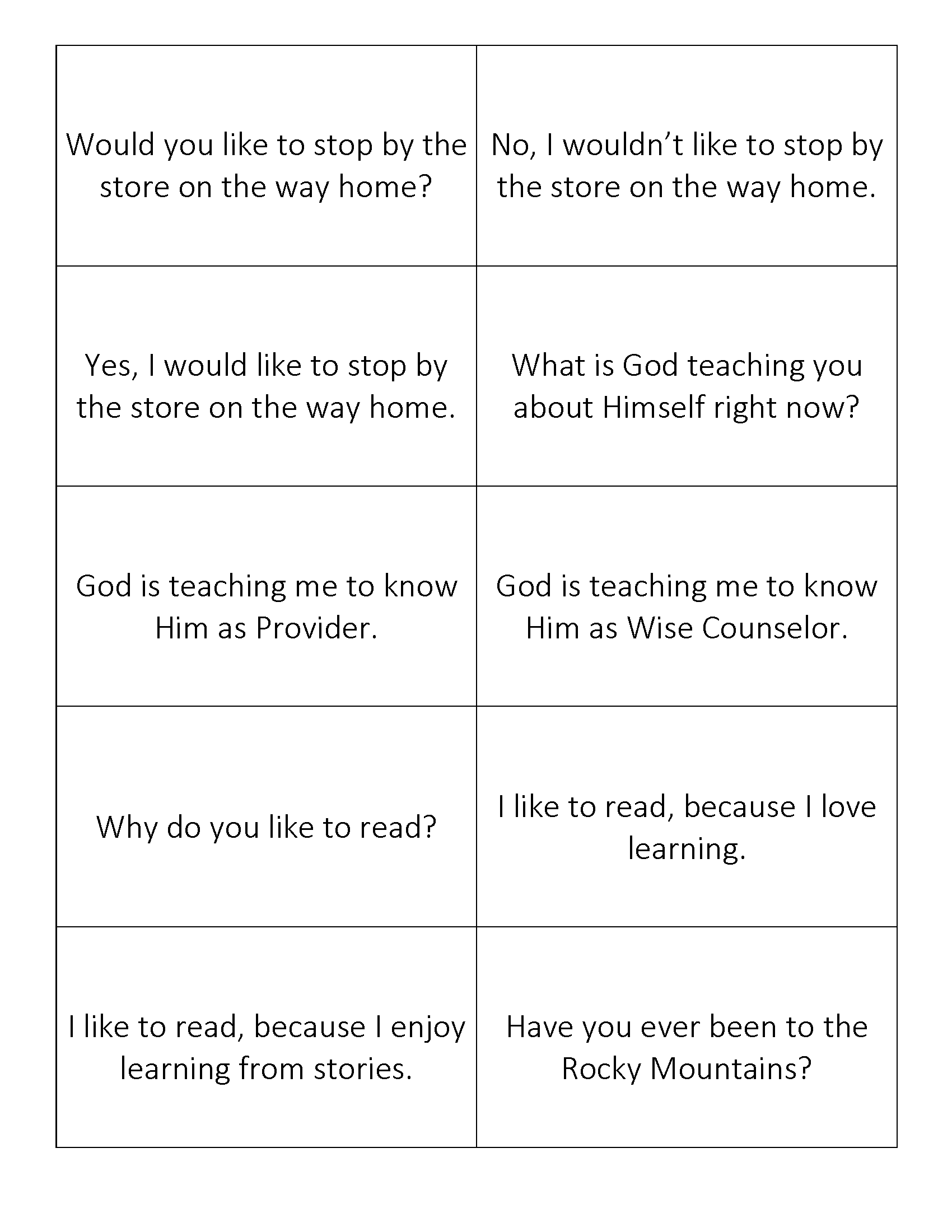
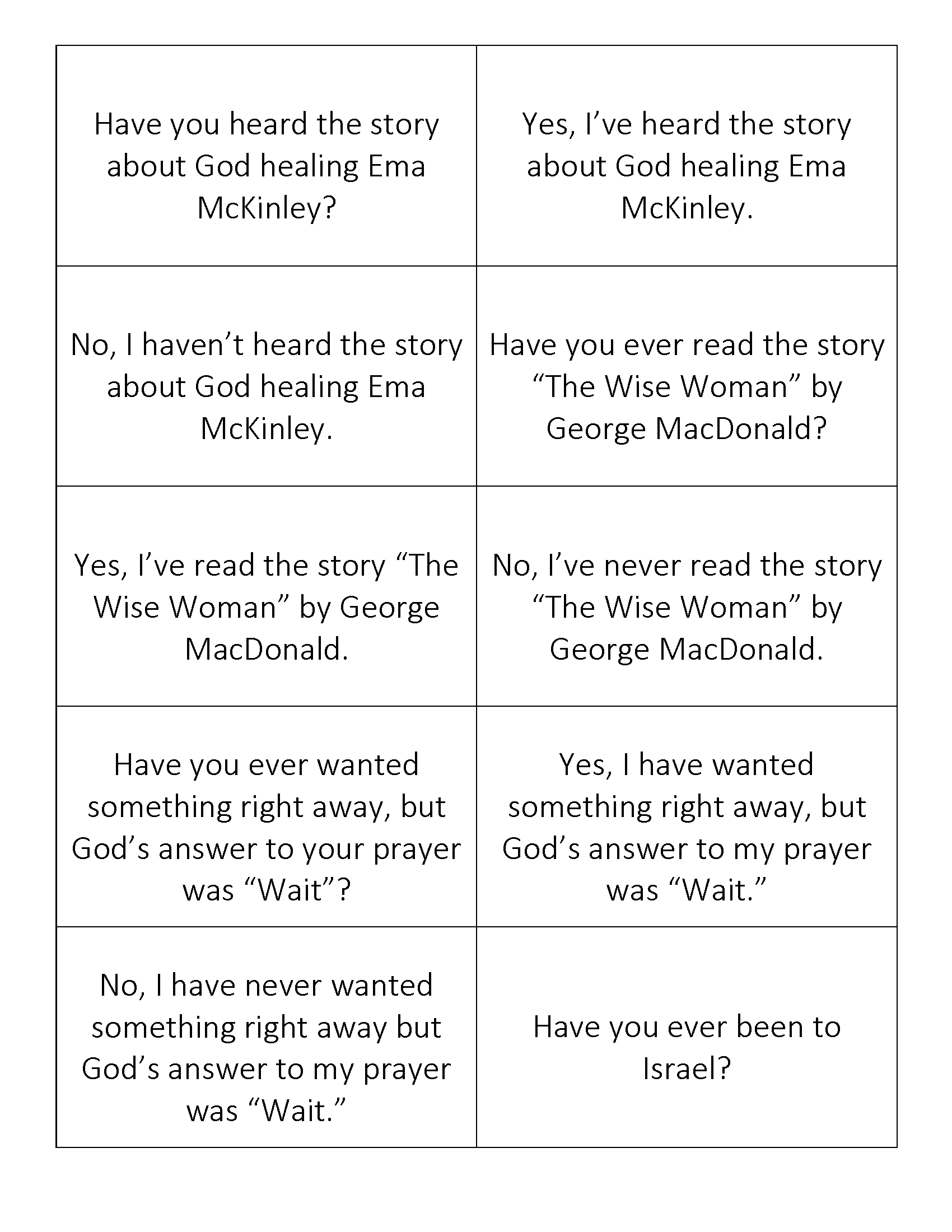
Interrogative Questions Go Fish Game
This classic, engaging game gets students interacting and using respectful questions while reinforcing what interrogatives are and how to form them. Questions are of varying complexity to teach progressively more difficult grammar concepts. This game is great for native and non-native English speakers practicing English Grammar. It’s a wonderful and clever way to keep reinforcing what you are teaching while your students see it as a fun break time.
This is an extra large deck, so you can adjust to play with groups of 2-3 up to groups of 16. It had 40 sets and is 28 pages to be printed front to back (This is a digital file). There is a background for the back of the cards to help ensure kids cannot see through the cards. It's so fun, you might just want to keep playing and never get back to other grammar work!
Interrogative Go Fish
I hope your students enjoy this classic, interactive game with a Grammar twist to help them learn interrogatives and question formation in English!
Why play Interrogative Go Fish?
This classic, engaging game gets students interacting and using respectful questions while reinforcing what interrogatives are and how to form them. Questions are of varying complexity to teach progressively more difficult grammar concepts, so you can select the sets reinforcing the concepts you want to focus on. This game reinforces:
· that interrogatives are questions and that they are an important sentence type.
· how the word order differs between questions and answers.
· varying verb tenses (including simple, progressive, and perfect tenses).
· modal use (helping verbs often used for politeness, such as would and could).
And really- it’s just fun! It’s a wonderful and clever way to keep reinforcing what you are teaching while your students see it as a fun break time.
Who is the ideal student for Interrogative Go Fish?
Any student practicing English grammar is an ideal student. Non-native English speakers could learn many concepts playing this game. Native English speakers studying sentence types and sentence classification would benefit highly from this game as well.
How to play Interrogative Go Fish
Game Setup:
1. Shuffle the cards. For groups of 2-3, use 18 sets; for groups of 4-6, use 28 sets; and for groups of 7-10+ use all 40 sets.
2. Deal 5 cards per person. Put the remaining cards face down in the middle for a draw pile.
3. Show the students the list of potential Interrogatives they could be finding matches for.
Game Play:
1. The player who most recently asked or answered a question in class starts. Turns proceed clockwise.
2. On your turn, you ask another player for cards related to a specific question. For example, you might say, "Daniel, do you have “What language were you just speaking?" This interrogative sentence is a request for any of the 3 related cards, “What language were you just speaking?,” “I was just speaking Portuguese,” or “I was just speaking Hebrew.” Note: you may only ask one person about a specific interrogative, and you must have at least one related card in your hand.
3. The player you ask (Daniel in this case) must answer honestly:
a. If they have any of the 3 cards related to that question: They must give you all the cards related to that question in their hand. If the question was not asked perfectly, they still must give the related cards (facilitate as needed).
b. If they don't have any cards related to that question: They must say "Go Fish!"
4. Receiving Cards:
a. If you receive cards, your turn continues, and you may immediately use another specific interrogative sentence to try to get more specific cards from another specific person.
b. Your turn ends when you hear “Go Fish!” Once you hear "Go Fish!": Draw one card from the draw pile and add it to your hand. Your turn then ends.
5. Completing a Set: The moment you collect 3 cards related to the same question, place them face up in front of you. This is called a "set."
Game End:
1. Ending the Game: The game ends when either the draw pile runs out of cards or one of the players runs out of cards in their hand.
2. Determining the Winner: All players count the number of books they've formed. The player with the most books wins the game!
